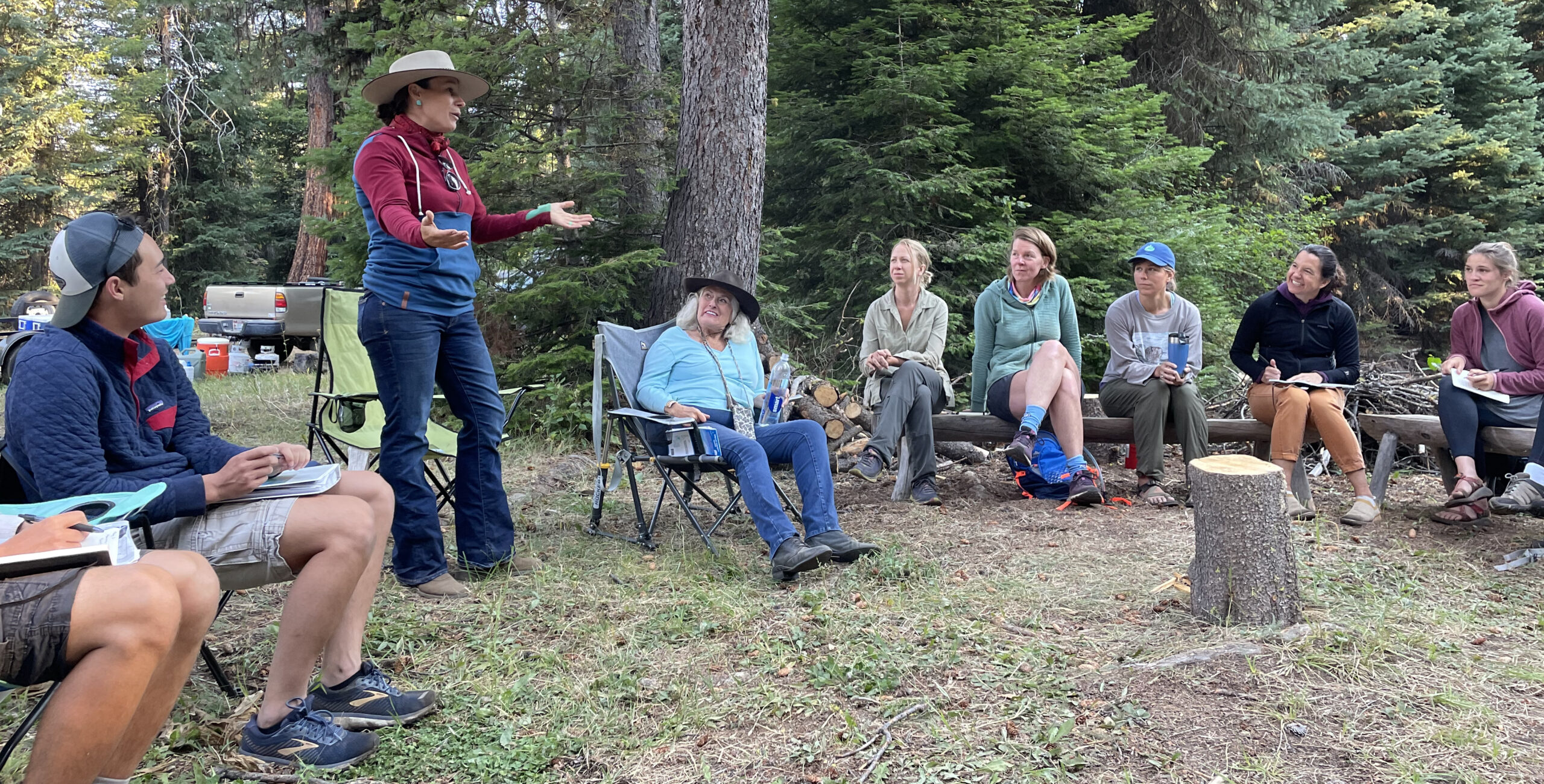
‘Learning How to Live on a Piece of Land Without Wrecking It’
Alejandro “Lejo” Flores paraphrased his master’s degree advisor in describing his motivation for being one of the leaders behind establishing Boise State University’s new School of the Environment.
“One of my life’s missions is to figure out how you live on a piece of land without wrecking it,” he said. Flores is a professor of geosciences at Boise State specializing in computational and statistical models for hydrological and ecoclimate systems. He’s also the director of the Laboratory for Ecohydrological Applications and Forecasting. For him, viewing big problems like humanity’s place in the world requires “other ways of knowing.”
“I’m trying to understand the physics and biology of how these systems work. We need those humanities and social sciences perspectives. There’s only so much that I as a biophysical scientist can bring to the table in that conversation,” he said.
In 2022, the Idaho State Board of Education gave a green light to Boise State to establish the School of the Environment, creating a gateway to the many areas of study that bear on that topic. Neither a building, department nor college, but a union of disciplines spanning the entire university, the School of the Environment exposes students, professors and researchers to each other’s areas of study, enhancing the applicability of students’ degrees, enriching the academic output of Boise State faculty, and forwarding the university as a powerhouse of knowledge and widespread impact.
The problems posed by the environment are numerous and daunting. Think pollution, climate change, loss of arable or livable land, human migration, loss of biodiversity and negative human health impacts, just to name a handful. For researchers like Flores, whose area of study is predictive modeling of water and climate systems, adjacency with experts of subjects outside his wheelhouse helps him ask better questions and arrive at more accurate and useful conclusions.
A School of the Environment may not make the big problems any simpler, but it is simplifying how students and faculty approach them. It’s a place where people can go with their research questions and environmental interest. By supporting a network of programs like the Hazard and Climate Resilience Institute, the Idaho Climate Literacy Education Engagement and Research (I-CLEER), the Redfish Environmental Data Institute, and experiential learning, the public can ensure students have access to quality programs, resources, and off-campus opportunities.
Boise State wouldn’t be the first university to establish something akin to the School of the Environment, but another of its leaders, Boise State History Professor and Cecil D. Andrus Endowed Chair of Public Lands Emily Wakild, said the history of the university has given it a head start over many other institutions. Land grant universities that began as or featured “colleges of natural resources” have struggled to make the transition. Boise State comes with none of that history, giving its new school an advantage.
“What we’re doing is stepping over those natural resource schools,” she said. “Those are defined by extractive activities. Not coming from that trajectory, we have less baggage and tradition.”
Boise State is especially well-positioned to have an impact on environmental issues. The State of Idaho has long been the site of resource-cultivation industries like mining, farming and logging; and the university’s location in the state capital, with full access to its political and bureaucratic machines, places it close to the levers of research, policy and change.
The School of the Environment is gearing up to have a powerful impact within Idaho, and is establishing Boise State as a hub of information, innovation, research and alumni in the environmental arena. It will also transform how these elements interact on campus, what Biology Professor Kevin Feris called “a different perspective on environmental questions.”
“‘Harmony’ might be the term,” he said. “Understanding how things change through time, and pairing that with the known needs for how we use the environment — part of what we’re doing is trying to understand the long-term effects of extractive environmental thinking, and we don’t have that historical baggage that brings a predetermined mindset. The folks that come under the tent want to talk to each other.”
Faculty are the backbone of a Boise State education. They mentor students, expand knowledge through research, and tackle the biggest challenges facing the world today. That’s why establishing more endowed faculty positions is a pillar of the Unbridled campaign. Endowments create ongoing support and a career path for professors, researchers and instructors, helping them deliver the best experience for students, break ground in their fields, and empower Boise State to attract and retain talented faculty.
Be a Part of The Campaign for Boise State
Help create the blueprint for what’s next.